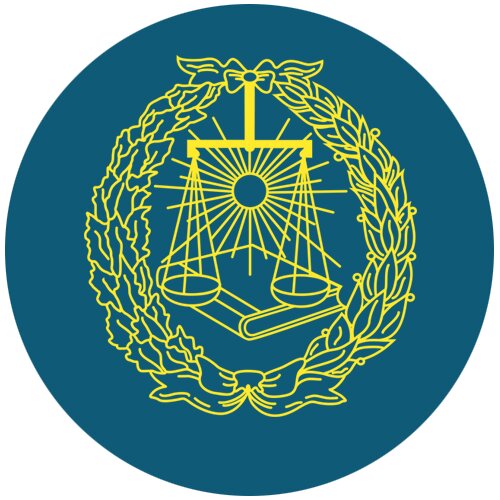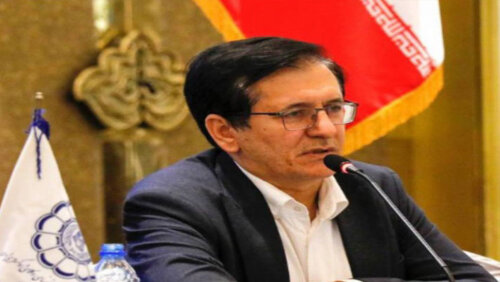Best Civil Rights Lawyers in Iran
Share your needs with us, get contacted by law firms.
Free. Takes 2 min.
Or refine your search by selecting a city:
List of the best lawyers in Iran
About Civil Rights Law in Iran:
Civil Rights in Iran are protected by the Iranian Constitution and various laws and regulations. These rights include freedoms of expression, assembly, and association, as well as protections against discrimination and arbitrary detention.
Why You May Need a Lawyer:
You may need a lawyer in Iran if your civil rights have been violated, such as being arrested without cause or facing discrimination based on your gender, religion, or ethnicity. A lawyer can help you understand your rights, navigate the legal system, and seek justice on your behalf.
Local Laws Overview:
In Iran, civil rights are protected by the Constitution, the Civil Code, and the Islamic Penal Code. These laws guarantee the right to a fair trial, freedom of speech, and freedom of religion. However, there are restrictions on these rights, particularly concerning political dissent and activism.
Frequently Asked Questions:
Q: What are some common civil rights violations in Iran?
A: Common violations include arbitrary detention, lack of due process, restrictions on freedom of expression, and discrimination against minority groups.
Q: Can I speak out against the government in Iran?
A: While freedom of speech is protected by the Constitution, criticizing the government can lead to legal repercussions in Iran. It is important to be cautious when expressing dissenting views.
Q: Can I seek asylum in Iran if my civil rights are being violated in my home country?
A: Iran has signed international agreements on refugees, but seeking asylum in Iran can be complicated. It is advisable to consult with a lawyer or international organizations for guidance on the asylum process.
Q: How can I report a civil rights violation in Iran?
A: You can report violations to local authorities, human rights organizations, or legal aid clinics. It is important to document any evidence of the violation and seek legal assistance for support.
Q: Are there legal aid services available for civil rights cases in Iran?
A: Yes, there are legal aid clinics and organizations that provide assistance to individuals facing civil rights violations in Iran. These services may be limited, so it is important to seek help as soon as possible.
Q: What are the penalties for violating civil rights in Iran?
A: Violations of civil rights can result in legal penalties, including fines, imprisonment, or restrictions on certain rights. The severity of the penalty depends on the nature of the violation and the laws that have been broken.
Q: Can I challenge a civil rights violation in court in Iran?
A: Yes, you have the right to challenge civil rights violations in court in Iran. It is important to gather evidence, seek legal representation, and follow the proper legal procedures to protect your rights.
Q: Are there specific laws protecting the rights of women and minorities in Iran?
A: Yes, Iran has laws that protect the rights of women and minorities, including laws prohibiting discrimination and ensuring equal treatment. However, these rights are not always enforced, and violations can occur.
Q: Can I file a complaint against a government official for violating my civil rights in Iran?
A: You can file a complaint against a government official for violating your civil rights in Iran. It is important to document the violation, seek legal assistance, and follow the proper procedures for filing a complaint through the appropriate channels.
Q: How long do I have to take legal action for a civil rights violation in Iran?
A: The statute of limitations for filing a civil rights violation case in Iran varies depending on the nature of the violation and the specific laws that have been broken. It is important to seek legal advice promptly to determine the appropriate course of action.
Additional Resources:
If you are in need of legal assistance for civil rights issues in Iran, consider contacting organizations such as the Iranian Bar Association, the Center for Human Rights in Iran, or the United Nations Office of the High Commissioner for Human Rights. These organizations can provide guidance and support for your case.
Next Steps:
If you believe your civil rights have been violated in Iran, it is important to seek legal advice as soon as possible. Contact a lawyer experienced in civil rights law to discuss your case, understand your rights, and determine the best course of action to seek justice. Remember to document any evidence of the violation and seek support from local and international organizations that specialize in civil rights issues. Stand up for your rights and seek justice for any violations you have experienced.
Lawzana helps you find the best lawyers and law firms in Iran through a curated and pre-screened list of qualified legal professionals. Our platform offers rankings and detailed profiles of attorneys and law firms, allowing you to compare based on practice areas, including Civil Rights, experience, and client feedback.
Each profile includes a description of the firm's areas of practice, client reviews, team members and partners, year of establishment, spoken languages, office locations, contact information, social media presence, and any published articles or resources. Most firms on our platform speak English and are experienced in both local and international legal matters.
Get a quote from top-rated law firms in Iran — quickly, securely, and without unnecessary hassle.
Disclaimer:
The information provided on this page is for general informational purposes only and does not constitute legal advice. While we strive to ensure the accuracy and relevance of the content, legal information may change over time, and interpretations of the law can vary. You should always consult with a qualified legal professional for advice specific to your situation.
We disclaim all liability for actions taken or not taken based on the content of this page. If you believe any information is incorrect or outdated, please contact us, and we will review and update it where appropriate.
Browse civil rights law firms by city in Iran
Refine your search by selecting a city.










